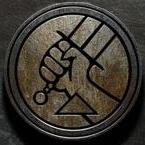Apollo11
Posts: 24082
Joined: 6/7/2001
From: Zagreb, Croatia
Status: offline

|
Hi all,
War is won by logistics! 
Germans could have trid the Sealion invasion and they might have succesfull landing in England - but they would be doomed there because the landed troops would eventually run out of ammo, fuel and supplies... 
The Germans never had Mullbery harbours - they simply had to rely on capturing some ports in England - and to think that such port would be able to be defended agianst everything British would have thrown against it is impossible dearm for Germans!
BTW, there is one nice war game conducted in the, I think 1970's...
quote:
Operation Sealion - summary of an exercise held at the Staff College, Sandhurst in 1974.

The full text is in 'Sealion' by Richard Cox. The scenario
is based on the known plans of each side, plus previously
unpublished Admiralty weather records for September 1940.
Each side (played by British and German officers respectively)
was based in a command room, and the actual moves plotted
on a scale model of SE England constructed at the School
of Infantry. The panel of umpires included Adolf Galland,
Admiral Friedrich Ruge, Air Chief Marshal Sir Christopher
Foxley-Norris, Rear Admiral Edward Gueritz, General Heinz
Trettner and Major General Glyn Gilbert.
The main problem the Germans face is that are a) the
Luftwaffe has not yet won air supremacy; b) the possible
invasion dates are constrained by the weather and tides
(for a high water attack) and c) it has taken until
late September to assemble the necessary shipping.
Glossary
FJ = Fallschirmjaeger (German paratroops)
MTB = Motor Torpedo Boat (German equivalent, E-Boat)
DD = Destroyer
CA = Heavy Cruiser
BB = Battleship
CV = Aircraft Carrier
22nd September - morning
The first wave of a planned 330,000 men hit the beaches
at dawn. Elements of 9 divisions landed between
Folkestone and Rottingdean (near Brighton).
In addition 7th FJ Div landed at Lympne to take the airfield.
The invasion fleet suffered minor losses from MTBs during
the night crossing, but the RN had already lost one
CA and three DDs sunk, with one CA and two DDs damaged,
whilst sinking three German DDs. Within hours of the landings
which overwhelmed the beach defenders, reserve formations
were despatched to Kent. Although there were 25 divisions
in the UK, only 17 were fully equipped, and only three
were based in Kent, however the defence plan relied on
the use of mobile reserves and armoured and mechanised
brigades were committed as soon as the main landings were
identified.
Meanwhile the air battle raged, the Luftwaffe flew 1200
fighter and 800 bomber sorties before 1200 hrs. The RAF
even threw in training planes hastily armed with bombs,
but the Luftwaffe were already having problems with their
short ranged Me 109s despite cramming as many as possible
into the Pas de Calais.
22nd - 23rd September
The Germans had still not captured a major port, although
they started driving for Folkestone. Shipping unloading
on the beaches suffered heavy losses from RAF bombing
raids and then further losses at their ports in France.
The U-Boats, Luftwaffe and few surface ships had lost
contact with the RN, but then a cruiser squadron with
supporting DDs entered the Channel narrows and had to
run the gauntlet of long range coastal guns, E-Boats
and 50 Stukas. Two CAs were sunk and one damaged. However
a diversionary German naval sortie from Norway was
completely destroyed and other sorties by MTBS and DDs
inflicted losses on the shipping milling about in the
Channel. German shipping losses on the first day
amounted to over 25% of their invasion fleet, especially
the barges, which proved desperately unseaworthy.
23rd Sept dawn - 1400 hrs.
The RAF had lost 237 planes out 1048 (167 fighters and
70 bombers), and the navy had suffered enough losses such
that it was keeping its BBs and CVs back, but large
forces of DDs and CAs were massing. Air recon showed a
German buildup in Cherbourg and forces were diverted to
the South West.
The German Navy were despondant about their losses,
especially as the loss of barges was seriously
dislocating domestic industry. The Army and Airforce
commanders were jubilant however, and preperations for
the transfer of the next echelon continued along with
the air transport of 22nd Div, despite Luftwaffe losses
of 165 fighters and 168 bombers. Out of only 732 fighters
and 724 bombers these were heavy losses. Both sides
overestimated losses inflicted by 50%.
The 22nd Div airlanded successfully at Lympne, although
long range artillery fire directed by a stay-behind
commando group interdicted the runways. The first British
counterattacks by 42nd Div supported by an armoured
brigade halted the German 34th Div in its drive on Hastings.
7th Panzer Div was having difficulty with extensive
anti-tank obstacles and assault teams armed with sticky
bombs etc. Meanwhile an Australian Div had retaken
Newhaven (the only German port), however the New Zealand
Div arrived at Folkestone only to be attacked in the
rear by 22nd Airlanding Div. The division fell back on
Dover having lost 35% casualties.
Sep 23rd 1400 - 1900 hrs
Throughout the day the Luftwaffe put up a maximum effort,
with 1500 fighter and 460 bomber sorties, but the RAF
persisted in attacks on shipping and airfields. Much of
this effort was directed for ground support and air
resupply, despite Adm Raeders request for more aircover
over the Channel. The Home Fleet had pulled out of air
range however, leaving the fight in the hands of 57 DDs
and 17 CAs plus MTBs. The Germans could put very little
surface strength against this. Waves of DDs and CAs
entered the Channel, and although two were sunk by U-Boats,
they sank one U-Boat in return and did not stop. The German
flotilla at Le Havre put to sea (3 DD, 14 E-Boats) and at
dusk intercepted the British, but were wiped out, losing
all their DDs and 7 E-Boats.
The Germans now had 10 divisions ashore, but in many
cases these were incomplete and waiting for their
second echelon to arrive that night. The weather
was unsuitable for the barges however, and the decision
to sail was referred up the chain of command.
23rd Sep 1900 - Sep 24th dawn
The Fuhrer Conference held at 1800 broke out into bitter
inter-service rivalry - the Army wanted their second
echelon sent, and the navy protesting that the
weather was unsuitable, and the latest naval defeat
rendered the Channel indefensible without air support.
Goring countered this by saying it could only be done
by stopped the terror bombing of London, which in turn
Hitler vetoed. The fleet was ordered to stand by.
The RAF meanwhile had lost 97 more fighters leaving only
440. The airfields of 11 Group were cratered ruins, and
once more the threat of collapse, which had receded in
early September, was looming. The Luftwaffe had lost
another 71 fighters and 142 bombers. Again both sides
overestimated losses inflicted, even after allowing for
inflated figures.
On the ground the Germans made good progress towards Dover
and towards Canterbury, however they suffered reverses
around Newhaven when the 45th Div and Australians
attacked. At 2150 Hitler decided to launch the second wave,
but only the short crossing from Calais and Dunkirk. By
the time the order reached the ports, the second wave
could not possibly arrive before dawn. The 6th and 8th
divisions at Newhaven, supplied from Le Havre, would not
be reinforced at all.
Sep 24th dawn - Sep 28th
The German fleet set sail, the weather calmed, and U-Boats,
E-Boats and fighters covered them. However at daylight 5th
destroyer flotilla found the barges still 10 miles off
the coast and tore them to shreds. The Luftwaffe in turn
committed all its remaining bombers, and the RAF responded
with 19 squadrons of fighters. The Germans disabled two
CAs and four DDs, but 65% of the barges were sunk. The
faster steamers broke away and headed for Folkestone,
but the port had been so badly damaged that they could
only unload two at a time.
The failure on the crossing meant that the German
situation became desperate. The divisions had sufficient
ammunition for 2 to 7 days more fighting, but without
extra men and equipment could not extend the bridgehead.
Hitler ordered the deployment on reserve units to Poland
and the Germans began preparations for an evacuation as
further British arracks hemmed them in tighter. Fast
steamers and car ferries were assembled for evacuation
via Rye and Folkestone. Of 90,000 troops who landed
on 22nd september, only 15,400 returned to France, the rest
were killed or captured.
Leo "Apollo11"
_____________________________
 Prior Preparation & Planning Prevents Pathetically Poor Performance! A & B: WitW, WitE, WbtS, GGWaW, GGWaW2-AWD, HttR, CotA, BftB, CF P: UV, WitP, WitP-AE
|
 Printable Version
Printable Version

















 New Messages
New Messages No New Messages
No New Messages Hot Topic w/ New Messages
Hot Topic w/ New Messages Hot Topic w/o New Messages
Hot Topic w/o New Messages Locked w/ New Messages
Locked w/ New Messages Locked w/o New Messages
Locked w/o New Messages Post New Thread
Post New Thread